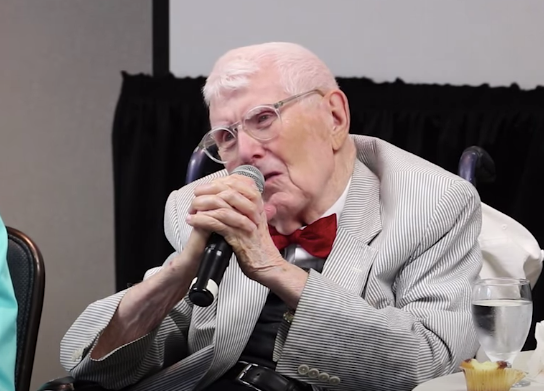Dr Aaron Beck: Father of cognitive behavioural therapy dies aged 100
American Psychologist called him one of the five most influential psychotherapists of all time

Your support helps us to tell the story
From reproductive rights to climate change to Big Tech, The Independent is on the ground when the story is developing. Whether it's investigating the financials of Elon Musk's pro-Trump PAC or producing our latest documentary, 'The A Word', which shines a light on the American women fighting for reproductive rights, we know how important it is to parse out the facts from the messaging.
At such a critical moment in US history, we need reporters on the ground. Your donation allows us to keep sending journalists to speak to both sides of the story.
The Independent is trusted by Americans across the entire political spectrum. And unlike many other quality news outlets, we choose not to lock Americans out of our reporting and analysis with paywalls. We believe quality journalism should be available to everyone, paid for by those who can afford it.
Your support makes all the difference.Dr Aaron Beck, popularly known as the father of cognitive behavioural therapy (CBT) – that revolutionised mental healthcare – died on Monday at his Philadelphia home. He was 100.
In a statement, Dr Judith Beck, his daughter who co-founded the Beck Institute for Cognitive Behaviour Therapy with her father, said that he died “peacefully early in the morning”.
Dr Beck said: “My father was an amazing person who dedicated his life to helping others. He has inspired students, clinicians, and researchers for several generations with his passion and his groundbreaking work.”
Dr Aaron Beck is credited with revolutionising the field of mental health by introducing Cognitive Behavioural Therapy, a form of psychotherapy, in the 1960s when he was working as a psychiatrist at the University of Pennsylvania.
His daughter said in the statement: “Our dream was to create an institution that would allow CBT to evolve and thrive. We’ve succeeded beyond our expectations. We now honour my father’s legacy as we continue his work and further his mission of helping individuals live healthier, happier and more meaningful lives.”
During his lifetime, Dr Aaron Beck wrote hundreds of articles and published at least 25 books.
CBT was originally developed by Dr Beck to help people manage their depression and to help them alter their behaviour.
The British Association for Behavioural and Cognitive Psychotherapies (BABCP) says that CBT is a kind of talking therapy that basically intends to change a person’s behaviour by changing their way of thinking. “If we change one of these we can alter the others,” says the BABCP, the Independent reported.
Dr Beck was born in Providence, Rhode Island in July 1921. Both his parents, Elizabeth and Harry Beck, were Jewish Russian immigrants. In 1942, he graduated from Brown and later he undertook a career in medicine at Yale Medical School, where he graduated in 1946.
He received numerous awards and recognition during his lifetime as a psychiatrist. The Beck Institute said in an obituary that he changed the shape of American psychiatry. The American Psychologist also called him “one of the five most influential psychotherapists of all time”.
He received the Heinz Award for the Human Condition in 2001 and the Albert Lasker Award for Clinical Medical Research in 2006.
He married Phyllis W Beck in 1950. She went on to work as the vice dean of the University of Pennsylvania Law School.
Dr Beck is survived by his wife; their four children Roy, Judith, Daniel, and Alice; their 10 grandchildren; and 10 great-grandchildren, the statement said.
In 1954, Dr Beck joined the Department of Psychiatry at the University of Pennsylvania, where he remained active as Professor Emeritus until his death.
His daughter, Dr Judith Beck, tweeted: “Dr Beck was a tireless advocate for evidence-based treatments for mental health, and his work touched countless lives.”
Paying tributes to Dr Beck, Lisa Muchnick Pote, the Beck Institute’s executive director said: “Without a doubt, the world is a better place because he recognised the importance of asking, ‘What was going through your mind?’ while in session with a patient who was experiencing negative emotion. This question led him to conceive the theoretical basis of CBT, the Cognitive Model; that one’s perception of situations is more closely tied to one’s reaction than the situation itself.”
Hundreds left condolence messages after they heard of Dr Beck’s passing. One Melissa Hopely Rice wrote: “You saved my life.”

Join our commenting forum
Join thought-provoking conversations, follow other Independent readers and see their replies
Comments